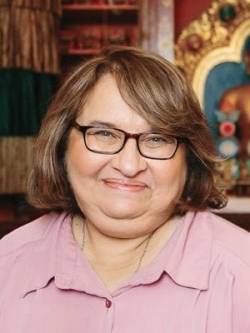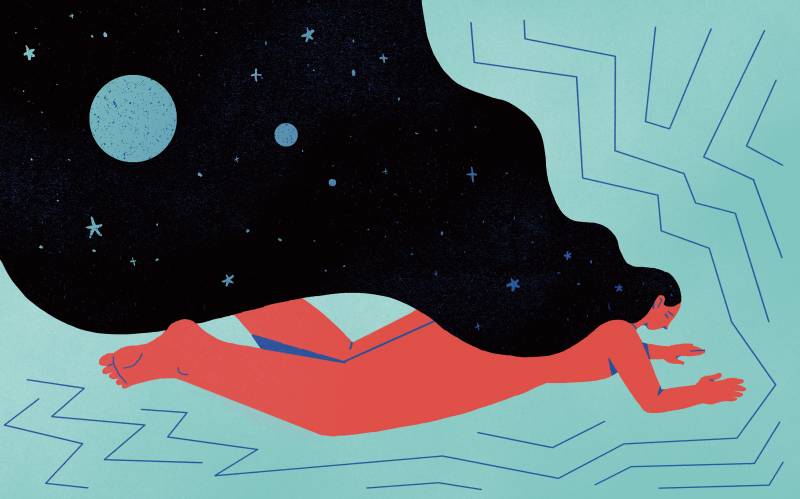"One of the strangest things I discovered about meditation practice is that while it looks like maybe the most solitary activity imaginable ... what it actually produces is a profound sense of connection, not only to yourself but to others," says Salzberg.
Salzberg wrote her new book for the many meditators she knows who are looking to bring their compassion alive into the world and for the many activists she knows on the front lines in need of relief. Wherever you are in your journey, she says, taking the time to be present with yourself and your emotions can be healing and gratifying. And that awareness can lead to connections — connections that lead to real change.
So, you might be asking, where do you start?
Mindfulness is a time to be with ourselves and our emotions "without the intense overlay of projection or comparison or judgment ... so that we get a cleaner, clearer view of what our experience actually is," Salzberg says. Mindfulness can be practiced in a lot of ways, and meditation, she says, is a direct shot at it.
She suggests taking 10 or 15 minutes out of your day to practice mindful meditation.
From this space of clarity, says Salzberg, we can get a better sense of ourselves, our place in the world and our relationships to other people. We can "reorient our priorities, and our worldview changes."
Sitting with your emotions in this way allows you to look at your experience with more objectivity. Take anger, for example.
"If you just watch — not judging and not being lost in it — you see anger is a very complex emotion. It almost always has sadness in it, fear in it, maybe grief in it, maybe guilt in it, and ... you see a kind of kernel of helplessness in it," says Salzberg. "And if we can get there to where we really observe the helplessness, then that's the moment we will resolve on an action, and that's the beginning of channeling the energy."
That energy won't go far without recognizing your agency, Salzberg says.
"I've seen over so many years of teaching that even as we develop a lot more kindness and compassion, there's often a feeling like, 'I could never do enough, whatever I have to contribute is so meager, it's little and nothing, and so I won't do anything.' " Agency requires that we continue to take action despite that uncertainty or insecurity.
"It means finding the one thing that you can make real to begin with, just making a call or getting someone's phone number," says Salzberg. "It's like we're rebuilding at the same time everything is falling apart."
It's these small individual acts, says Salzburg, that can together bring about big societal change.
"We share this life. We share this planet. We need to be responsive to one another as though what we do affects others and what others do will affect us, because that's the truth of things."
The podcast portion of this story was produced by Andee Tagle.
We'd love to hear from you. Leave us a voicemail at 202-216-9823 with a greeting, your name, your phone number and a random life tip. Or send us an email at LifeKit@npr.org. It might appear in an upcoming episode.
For more Life Kit, subscribe to our newsletter.
Copyright 2020 NPR. To see more, visit https://www.npr.org.
9(MDAxOTAwOTE4MDEyMTkxMDAzNjczZDljZA004))




9(MDAxOTAwOTE4MDEyMTkxMDAzNjczZDljZA004))